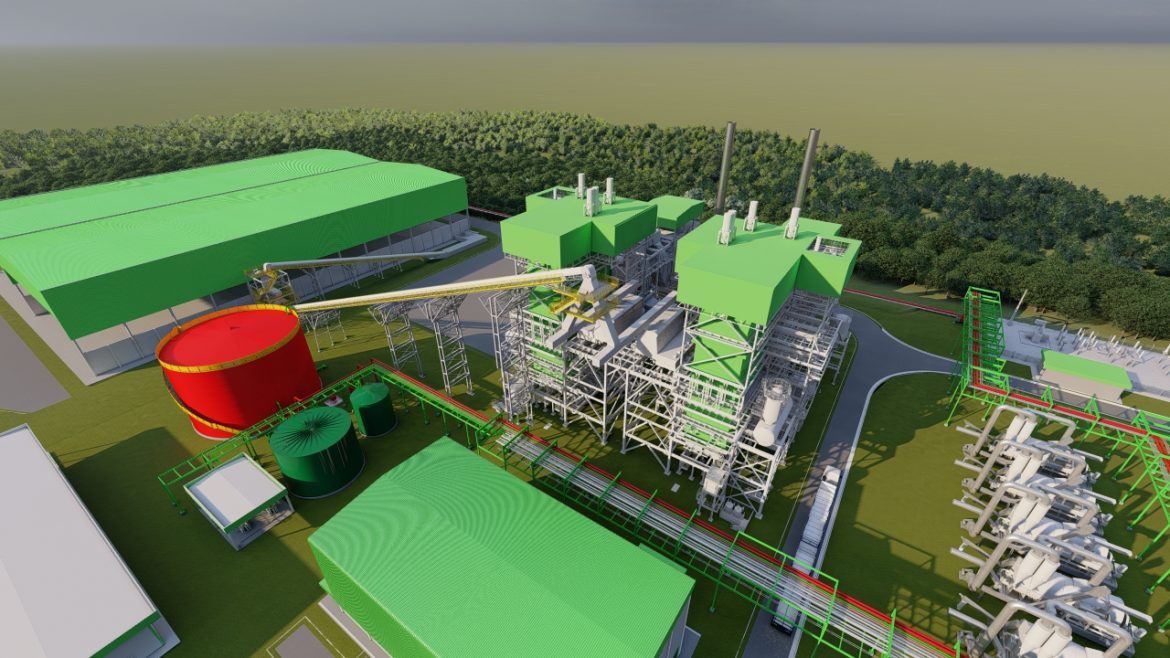Significant milestones have propelled Be8’s ethanol and bran factory project in recent months. The National Bank for Economic and Social Development (BNDES) approved a financing of BRL 729.7 million for the factory’s construction. Of the total, BRL 500 million comes from the BNDES More Innovation Program.
Be8’s investment aligns with the program due to its project plan for constructing a pioneering biofuel production project using raw materials not previously utilized for this purpose in Brazil, such as wheat and triticale, among others.
BNDES President Aloizio Mercadante emphasized that Brazil plays a central role in executing projects for energy transition, especially in the biofuels sector. “We are living through a historical window of opportunities and BNDES has been significantly contributing to industry innovation to make it greener and more sustainable,” he said.
“The project combines various elements of innovation and bioeconomy that align with President Lula’s new industrial policy: national production of biofuels, use of new raw materials such as wheat, and the resulting reduction in pollutant emissions,” explained José Luis Gordon, Director of Productive Development, Innovation, and Foreign Trade at BNDES. According to the director, the project also includes the reuse of waste and the elimination of liquid effluent discharge.
This financing through the BNDES More Innovation Program is highly important as it recognizes this investment as a bold initiative with significant innovation, which will also increase the supply of DDGS bran for animal protein production chains and promote investment in genetic technology development for wheat production specific to ethanol raw material. It’s also a viable income opportunity for farmers with winter cereal cultivation.
Environmental License
In April, Be8 received the Installation Environmental License (LI) from the Henrique Luis Roessler State Environmental Protection Foundation (FEPAM), a technical organization of the State Environmental Protection System (SISEPRA) of the state of Rio Grande do Sul. The ceremony was held in Porto Alegre with the presence of Renato Chagas, President of FEPAM, Ernani Pólo, State Secretary for Development of Rio Grande do Sul, Gabriel Ritter, Technical Director of the Foundation, Annelise Pedroso, Head of Licensing and Industry Monitoring Services at FEPAM, Helena Petersen, Environmental Analyst at FEPAM, Marcos Cittolin, Be8 Board of Directors Member, Filipe Cécere, Be8 Project Manager, Queli de Brum, Be8 Environmental Specialist, and Rodrigo Bordin, Be8 Health, Safety, and Environment Manager.
The Environmental Licensing process is the administrative procedure by which the environmental authority grants permission for the location, installation, expansion, and operation of ventures and activities utilizing environmental resources, and the issuance of the Installation License allows the start of construction. The first earthwork activities are estimated to begin by mid-June.
We are proud to have completed another phase of environmental approval, enabling us to begin construction works that will bring ethanol production to the state of Rio Grande do Sul, generate jobs, and provide a viable income opportunity for farmers with winter cereal cultivation. I extend my thanks and respect to the FEPAM team for their cooperation in the environmental licensing process.
“FEPAM has been overseeing Be8’s operations since 2005, starting with the preliminary licensing of its biodiesel plant in Passo Fundo. With the ethanol plant license granted today, Be8 adds another source of renewable fuel production that will contribute to the pursuit of a low-carbon energy matrix in the state,” emphasized FEPAM President Renato Chagas.
Engineering Project
Be8 has also chosen the Indian company Praj to establish a process license agreement, project, and engineering contract for this ethanol plant. Praj is India’s most successful company in bio-based technologies, engineering, and modularized solutions, with projects worldwide. One of the main advantages of Praj’s solution is the energy efficiency of the project, ensuring a quality product at the lowest operating cost and the experience in cereal-based ethanol production.
“In our quest to accelerate energy transition and decarbonize mobility, Praj Industries is proud to partner with Be8, a global renewable energy company, to establish a low-carbon ethanol plant based on wheat,” said Shishir Joshipura, CEO of Praj. “Together, we embark on a journey toward a circular bioeconomy with sustainable climate action, that drives innovation and progress,” he concluded.
This is another consistent step to secure innovative investment for Brazil with the best international expertise in cereal-based ethanol production. I take great pleasure in establishing this partnership with Praj and its team of specialists who, alongside Be8’s professionals, will reinforce the country’s position as a protagonist in energy transition.

